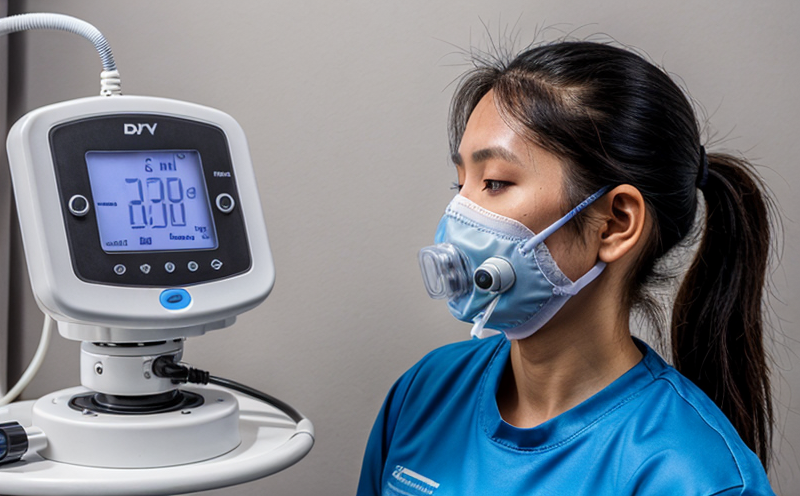ISO 5360 Anaesthetic Reservoir Bag Tensile Testing
The ISO 5360 standard is a pivotal document in medical device testing, specifically addressing the tensile performance of reservoir bags used in anaesthesia. These bags are crucial for ensuring that anesthetics and other gases are delivered to patients with precision and safety. This service focuses on the rigorous mechanical testing required by this international standard.
The primary objective of ISO 5360 is to ensure that the material used in these reservoir bags can withstand the stresses encountered during use without failure. The tensile strength, elongation at break, and modulus are key parameters assessed under this standard. Compliance with ISO 5360 not only ensures product safety but also enhances patient care by minimizing the risk of equipment failures.
During testing, a reservoir bag is subjected to controlled stretching forces until it reaches its breaking point. This process helps in identifying any weaknesses or defects that could compromise the integrity of the device during use. The test setup includes a tensile tester capable of applying precise and consistent loads, ensuring accurate measurement.
The specimen preparation involves carefully selecting a representative sample from the batch of bags to be tested. The bag is then mounted on the tester's grips and subjected to stretching until failure occurs. Throughout this process, stress-strain curves are recorded to provide detailed insights into the material properties.
The testing apparatus typically includes a computerized system for data acquisition, ensuring precise control over the test parameters. This setup allows for real-time monitoring of the bag's behavior under load, providing valuable information about its mechanical characteristics. The results of these tests are compared against specified limits outlined in ISO 5360 to determine compliance.
Compliance with this standard is crucial for medical device manufacturers aiming to meet regulatory requirements and ensure product reliability. Non-compliance can lead to recalls, legal issues, and reputational damage. By adhering to these stringent testing protocols, we ensure that the devices are safe and effective in clinical settings.
The detailed nature of ISO 5360 ensures that all aspects of the tensile behavior of reservoir bags are thoroughly evaluated. This comprehensive approach not only enhances product quality but also fosters trust among healthcare providers and patients.
Our testing facility is equipped with state-of-the-art equipment capable of performing these tests to the highest standards. Our team of experts ensures that each test is conducted meticulously, providing reliable data for your compliance reports.
Benefits
- Enhanced Product Safety: Ensuring that medical devices meet the highest safety standards before they reach the market.
- Avoidance of Recalls: By identifying potential issues early, we help prevent costly and damaging product recalls.
- Regulatory Compliance: Meeting stringent international standards helps manufacturers comply with regulatory requirements in various jurisdictions.
- Patient Safety: Reliable testing ensures that medical devices perform as intended, reducing the risk of harm to patients.
Industry Applications
The results from ISO 5360 tensile tests are critical for ensuring the integrity and reliability of anaesthetic reservoir bags used in a variety of medical applications. These include:
- Surgical Procedures: Ensuring that gases delivered during surgery are accurate and consistent.
- Anaesthesia Delivery: Providing safe and effective delivery of anesthetics to patients.
- Ventilation Equipment: Guaranteeing the reliability of ventilation systems used in critical care settings.
The findings from these tests are essential for manufacturers, ensuring that their products meet the highest standards of quality and performance. This not only enhances patient safety but also contributes to the overall advancement of medical technology.
Quality and Reliability Assurance
- Standard Operating Procedures: Ensuring that all tests are conducted according to established protocols.
- Data Accuracy: Rigorous validation of test data to ensure reliability and accuracy.
- Consistency in Results: Maintaining consistent outcomes across multiple tests to ensure reproducibility.
- Continuous Improvement: Leveraging feedback from testing results to improve product design and performance.





